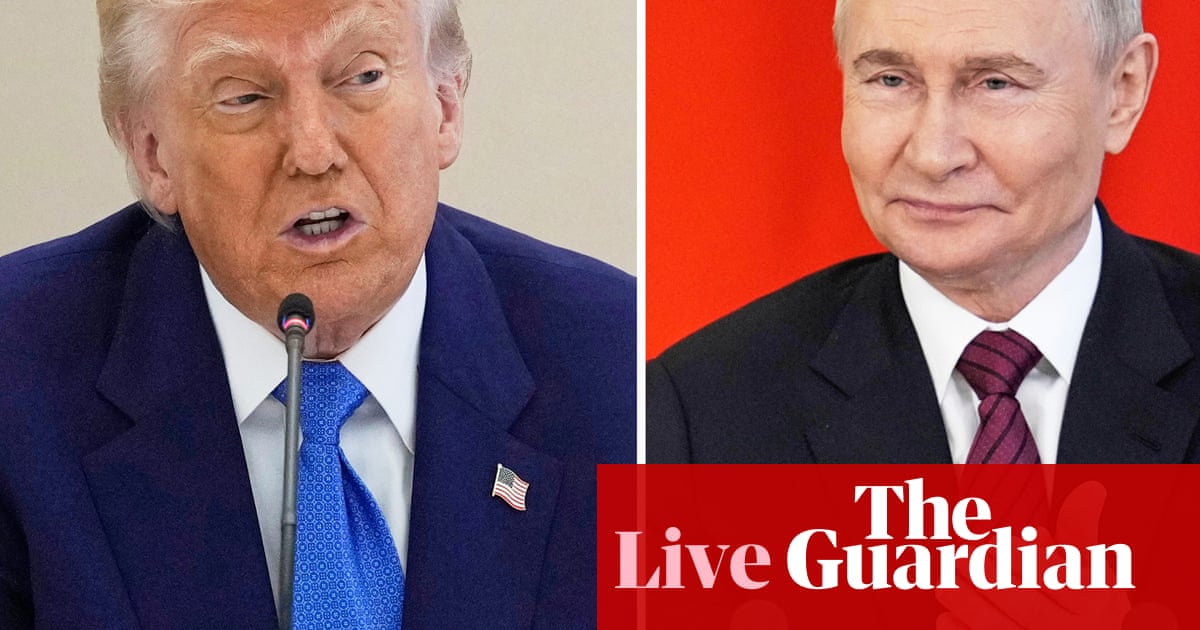Donald Trump’s sweeping tax-cut bill, stalled for days by Republican infighting over spending cuts, won approval from a key congressional committee on Sunday to advance toward possible passage in the House of Representatives later this week.
The action was a big win for Trump and House speaker Mike Johnson, after hardline Republican conservatives on Friday blocked the bill from clearing the House Budget Committee over a dispute involving spending cuts to the Medicaid healthcare program for lower-income Americans and the repeal of green energy tax credits, Reuters reports.
Four hardline members of the committee’s 21 Republicans allowed the legislation to advance by voting “present” in a rare Sunday night session. The bill passed in a 17-16 vote, with all Democrats voting against it.
The hardliners had spent much of the day in closed-door negotiations with House Republican leaders and White House officials.
“The deliberations continue at this very moment. They will continue on into the week, and I suspect, right up until the time we put this big, beautiful bill before the House,” House budget chair Jodey Arrington said.
Nonpartisan analysts say the bill, which would extend the 2017 tax cuts that were Trump’s signature first-term legislative win, would add $3tn to $5tn to the nation’s $36.2tn in debt over the next decade. Moody’s cited the rising debt, which it said was on track to reach 134% of GDP by 2035, for its decision on Friday to downgrade the US credit rating.
Treasury secretary Scott Bessent dismissed the cut’s significance in a pair of Sunday television interviews, saying the bill would spur economic growth that would outpace what the nation owed.
“I don’t put much credence in the Moody’s” downgrade, Bessent told CNN’s “State of the Union” program, echoing White House criticism.
Economic experts, meanwhile, warn the downgrade from the last of the three major credit agencies was a clear sign that the US has too much debt and should prompt lawmakers to either increase revenue or spend less.
The Kremlin said that Russian presidentVladimir Putinwill hold a call with US president Donald Trump at 5pm Moscow time (10am EDT) on Monday, state news agency RIA reported.
RIA cited Kremlin spokesperson Dmitry Peskov as saying that the two leaders’ discussion ofUkrainewould take into account the results of talks between Russia and Ukraine in Istanbul last week.
Hello and welcome to theUS politicslive blog. I’m Tom Ambrose and I will be bringing you all the latest news throughout the next few hours.
Donald Trump is due to speak to both Vladimir Putin andVolodymyr Zelenskyyin an effort to stop what he called the “bloodbath” war in Ukraine.
Trump, posting on his Truth Social account on Saturday,wrotethat he will speak to Putin on Monday morning. “THE SUBJECTS OF THE CALL WILL BE, STOPPING THE ‘BLOODBATH’ THAT IS KILLING, ON AVERAGE, MORE THAN 5000 RUSSIAN AND UKRAINIAN SOLDIERS A WEEK, AND TRADE,” Trump wrote, in his customary all-capitalized prose. The president has repeatedly cited a death toll for the conflict that ismuch higherthan any official figures, orestimates based on an open-source investigation, without explaining why.
Kremlin spokesperson Dmitry Peskov confirmed to a state-run Russian news agency that preparations were under way for a call between the US and Russian presidents.
Trump’s call with the Russian president will be followed by a separate conversation with Zelenskyy, Ukraine’s leader, and Nato leaders as part of the US effort to end the war that has raged since the full-scale Russian invasion in 2022. “HOPEFULLY IT WILL BE A PRODUCTIVE DAY, A CEASEFIRE WILL TAKE PLACE, AND THIS VERY VIOLENT WAR, A WAR THAT SHOULD HAVE NEVER HAPPENED, WILL END,” Trump wrote.
It’s unclear what kind of progress Trump will be able to spur, if any, in the peace process. Russia and Ukraine have just concluded mostly fruitless talks, the first of their kind since the start of the war, in Istanbul. Ukraine said it was ready for a ceasefire but was faced by “unacceptable” demands from Russia.
In other news:
Donald Trump’s acceptance of a$400m Boeing jetfromQataris the “definition of corruption”, a top Democrat said on Sunday, as several senior Republicans joined in a bipartisan fusillade of criticism and concern over the luxury gift.Chris Murphy, a Democratic senator forConnecticut, condemned the “flying grift” on NBC as he assailed the president’strip to several Gulf statesthis week that included a stop in Qatar.
As Trump wages a blunt attack onmajor law firmsand thejustice department, some lawyers are starting their own law firms and challenging the administration’s effort to cut funding and punish civil servants.The decision to start the firms come as the judiciary has emerged as a major bulwark against the Trump administration.
The US retail companyWalmartwill “eat some of the tariffs” in line with Trump’s demands, the president’s treasury secretary, Scott Bessent, has insisted, claiming he received the assurance in a personal phone call with the company’s chief executive, Doug McMillon.Walmart said last week it had no alternative toraising prices for consumersbeginning later this month because it could not absorb the cost of the president’s tariffs on international trade.
A proposed rule change making it easier to fire civil servants deemed to be “intentionally subverting presidential directives” could pave the way for the White House to fire statisticians employed to produce objective data on the economy but whose figures prove politically inconvenient, experts warn.With Trump under pressure to explain shrinking gross domestic product (GDP) figures amid economists’ warnings that tariffs could trigger a recession, the administration could use new employment rules to pressure workers into “cooking the books”.
Former US president Joe Biden has beendiagnosed with an “aggressive form” of prostate cancerthat has spread to his bones, his office announced on Sunday, and he and his family are considering options for treatment.Donald Trump expressed concern on behalf of himself and first lady Melania Trump.
US government debt maycome under more pressure this weekafter the credit rating agency Moody’s stripped the US of its top-notch triple-A rating.
